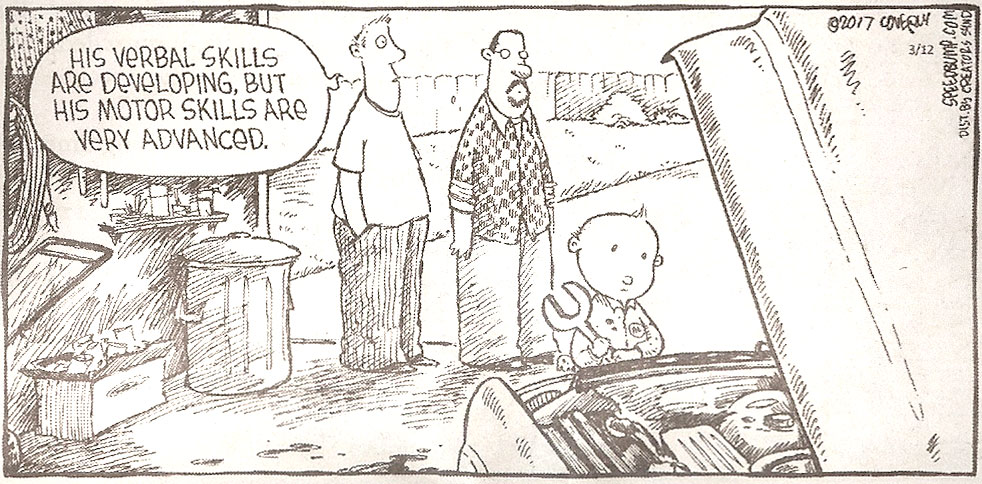|
Having trouble viewing this message? Click here to view it online.
To unsubscribe or change contact details, scroll to the bottom and follow the link.
|



|
Sentence Sequence and Transition
|
|
A challenge that any writer can run into is establishing fluent forward movement among sentences. To ensure understanding for readers, writers need to clearly connect related thoughts and properly signal when one is shifting to another.
Consider this text:
Janice is going to Nashville. She enjoys traveling. She loves rock music and concerts. Her favorite band, Heavy Medal, is performing. Janice’s family is having a reunion. The airline is lowering fares. Janice has two weeks of unused vacation from work. She wants to go to Austin, Texas, too.
These sentences convey information, but they also make us work to decipher their association. Their lack of cohesion lowers the likelihood we’ll retain them as we should.
As writers, we can help them adhere with proper arrangement and transitions. Sentence arrangement involves placing statements in a logical sequence. Transitional markers indicate the relationships among ideas.
For a better sequence of sentences, we focus on what the order of thoughts could or should be.
Scattered sequence:
Brianna wrote a report. She bought more paper. She gave it to her teacher. She proofed it for typos.
Logical sequence:
Brianna bought more paper. She wrote a report. She proofed it for typos. She gave it to her teacher.
For marking transitions, one way to connect different sentences is by repeating a word or an idea from a previous sentence.
Less connected:
Questionable claims can spread through social media. An embezzler sits on the village board.
Better with repeated idea:
Questionable claims can spread through social media. One such claim is that an embezzler sits on the village board.
Another way to achieve smoother links is by including a transitional word or phrase. These markers may also be referred to as conjuncts or conjunctive adverbs. The following table includes some of these common expressions.
| Addition |
moreover, even more, further, furthermore, besides, and,
and then, likewise, also, plus, too, as well, again, in
addition, equally important, next |
| Comparison |
similarly, likewise, in like manner |
| Contrast |
but, yet, however, still, nevertheless, on the other hand,
on the contrary, after all, at the same time, otherwise |
| Place |
here, there, near, beyond, beside, opposite to, adjacent to |
| Purpose |
to this end, for this purpose, with this object, because |
| Result |
hence, therefore, accordingly, consequently, thus, as a
result, then |
| Summary |
in brief, in sum, in short, in other words, that is, to be
sure, for example, for instance, in fact, indeed, in any
event |
| Time |
meanwhile, at length, immediately, soon, in the meantime,
afterward, later |
Less smooth:
I am a carpenter. I am a surfer. I will coach my son’s softball team.
More smooth with transitional words and phrase:
I am a carpenter. I am also a surfer. I will soon coach my son’s softball team as well.
With the preceding principles in mind, let’s touch up our text about Janice by working on our sentence sequence and transitions:
Janice is going to Nashville because her family is having a reunion there. She enjoys traveling; plus, she has two weeks of unused vacation from work. Janice also loves rock music and concerts, and her favorite band, Heavy Medal, is performing in Nashville the week of the reunion. Even more, the airline is lowering fares. Janice wants to go to Austin, Texas, later too.
By focusing on the order of our thoughts and the stitches that sew them, we elevate our impact as writers who communicate with precision, clarity and eloquence.
|
View and comment on this
article on our website.
|
|
Free BONUS Quiz for You!
Friend, because you are a subscriber to the newsletter, you get access to one of the Subscribers-Only Quizzes. Click here to take an A vs. An Quiz and get your scores and explanations instantly!
We will be adding many more quizzes this year to our already substantial list of quizzes. If you have suggestions for topics we have not yet covered, please send us a message at help@grammarbook.com.
|
Hundreds of Additional Quizzes
at Your Fingertips
Subscribe now to receive hundreds of additional English usage quizzes not found anywhere else!
Teachers and Employers
Save hours of valuable time! You may assign quizzes to your students and employees and have their scores tallied, organized, and reported to you! Let GrammarBook.com take the hassle out of teaching English!
"Fun to test my skills."
"The explanations really help ... thanks!"
"I can select the quizzes to assign to my students, and then the results are reported to me automatically!"
|

|
Don't need all the quizzes?
You can now purchase the same quizzes individually for ONLY 99¢ each.
Purchase yours here. |
If you think you have found an error in a quiz, please email us at help@grammarbook.com
|
 |
The Blue Book of Grammar and Punctuation
by Jane Straus, Lester Kaufman, and Tom Stern |
The Authority on English Grammar! Eleventh Edition Now Available
An indispensable tool for busy professionals, teachers, students, homeschool families, editors, writers, and proofreaders.
Available in print AND as an e-Book! Over 2,000 copies are purchased every month!
The publisher of The Blue Book, Jossey-Bass, A Wiley brand, is offering a 35 percent discount for those of you who order the book through Wiley.com. Shipping and tax are not included. Simply go to bit.ly/1996hkA and use discount code E9X4A.
Offer expires December 31, 2020.
|
Wordplay

|
 |
English In A Snap:
68 One-Minute English Usage Videos FREE |
Learn all about who and whom, affect and effect, subjects and verbs, adjectives and adverbs, commas, semicolons, quotation marks, and much more by just sitting back and enjoying these easy-to-follow lessons. Tell your colleagues (and boss), children, teachers, and friends. Click here to watch.
|
|